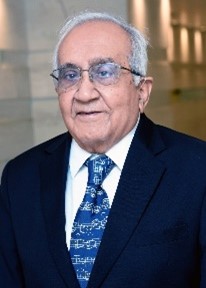- Highlights of 2024



Dr Kirit S. Parikh is the Chairman of Integrated Research and Action for Development, IRADe, a non profit think tank that works on policies in the areas of energy, climate change, urban issues, agriculture and poverty. He was honoured with Padma Bushan (third-highest Civilian Award) by the President of India in March 2009 and shared the Nobel Prize in 2007 given to IPCC authors. He was a Member of the Economic Advisory Councils (EAC) of five Prime Ministers of India, Atal Behari Vajpayee, P.V. Narasimha Rao, Chandra Shekhar, V.P.Singh and Rajiv Gandhi. He was Member (2004-09) of Prime Minister Manmohan Singh’s Planning Commission in charge of Energy, Water and Perspective Planning. He was the principal architect of India’s official “Integrated Energy Policy” and also expert group report on “Low-Carbon Strategy for inclusive Growth”. He is B.E. (Gujarat University, M.Tech. from IIT-Kharagpur, Doctor of Science in Civil Engineering from MIT, USA and also an S.M. in Economics from MIT. He has been Professor of Economics since 1967 beginning with Indian Statistical Institute in Delhi and was founder Director and Vice-Chancellor of Indira Gandhi institute of Development Research (IGIDR). He was Leader of Food and Agriculture Program of International Institute for Applied Systems Analysis (IIASA) in Vienna for 6 years. He has authored, co-authored and edited 30 books in the areas of planning, poverty and development, food and agriculture policies, trade modeling, energy modelling and planning, energy policy, energy economics, climate change, inclusive growth and strategies for low carbon development.